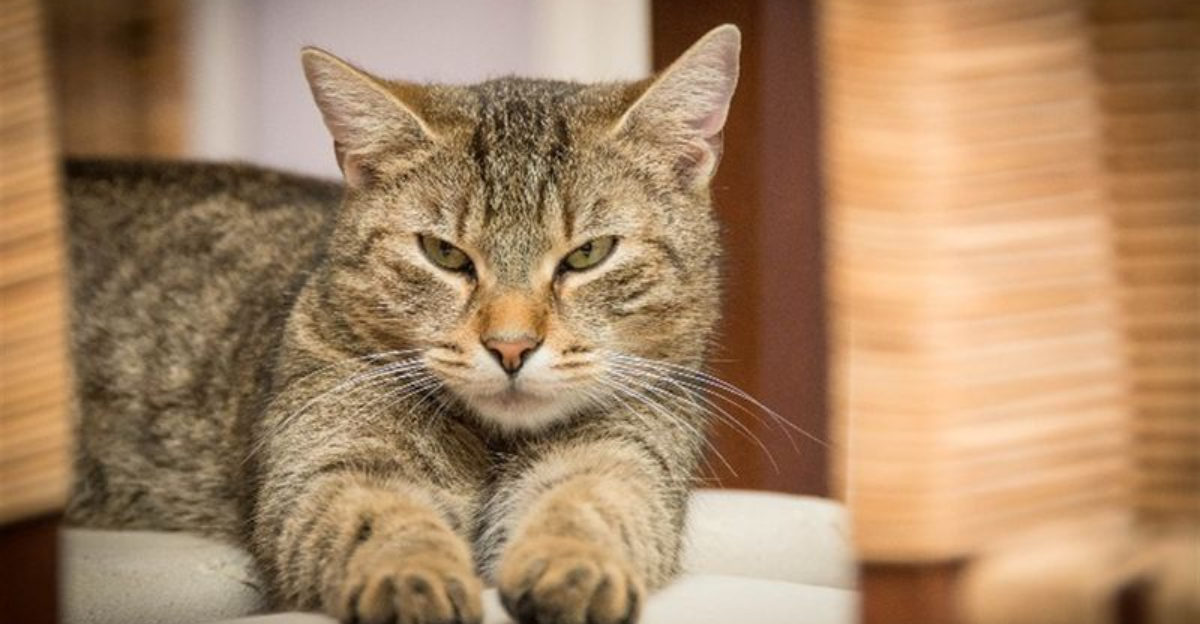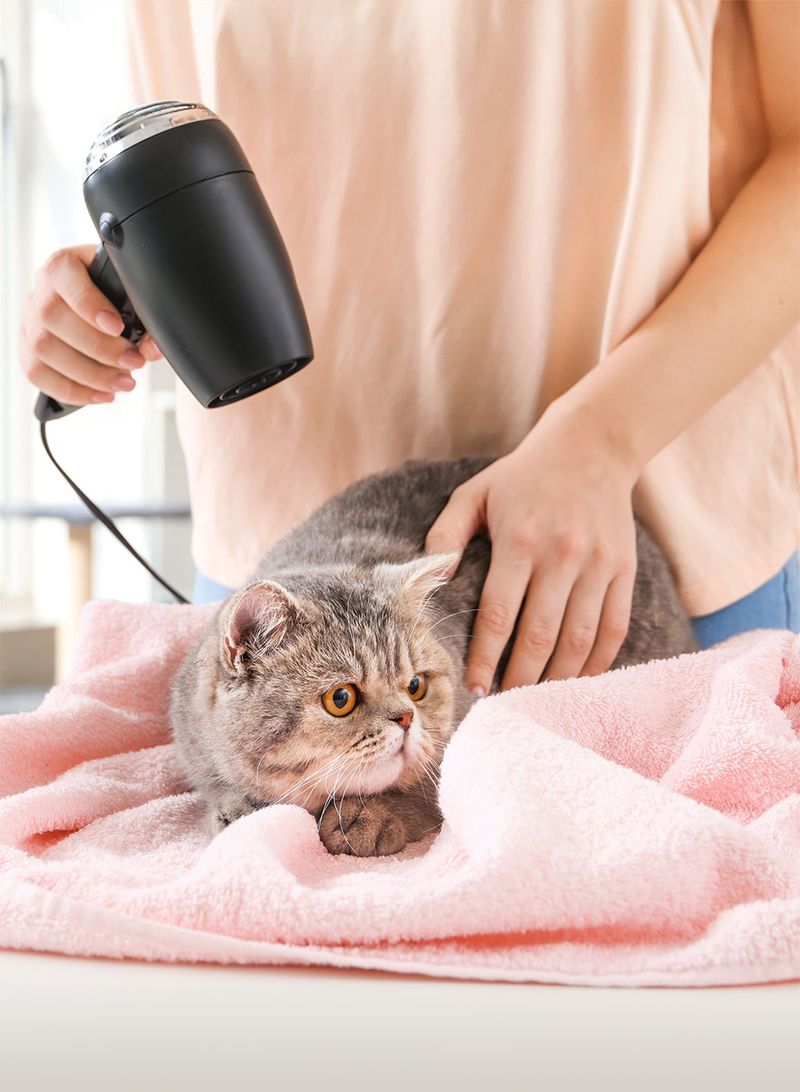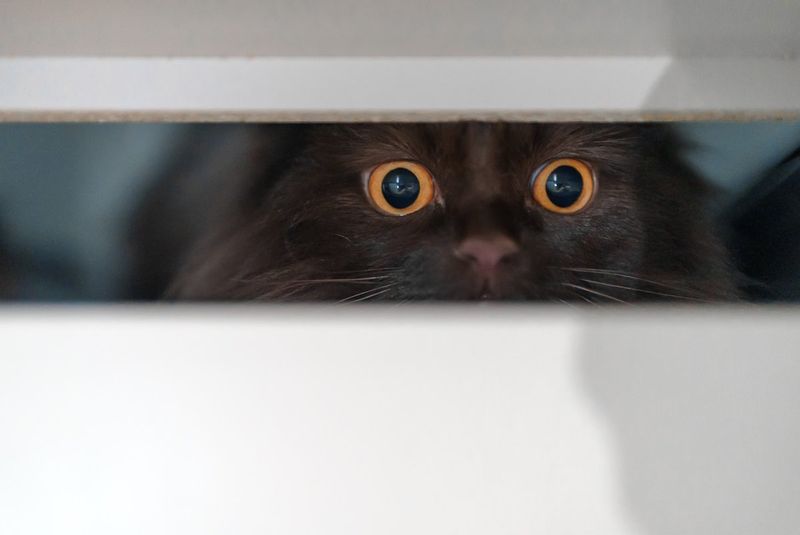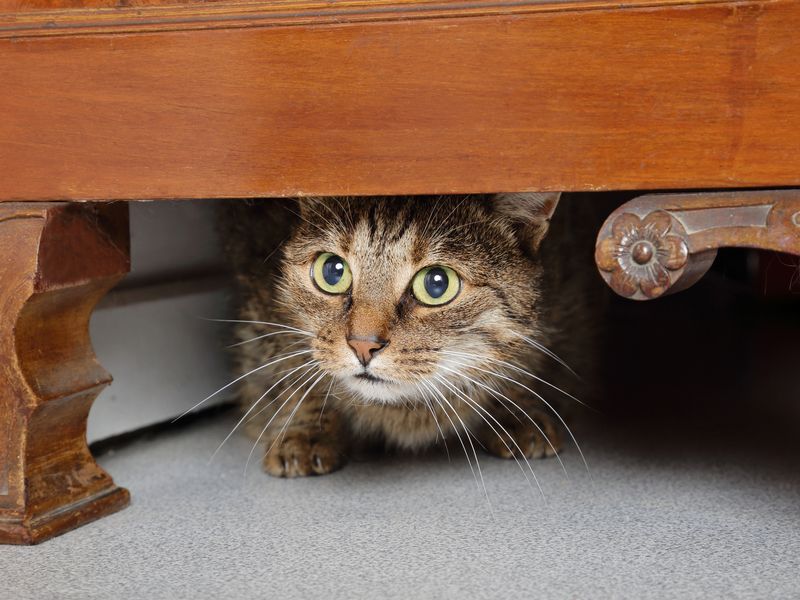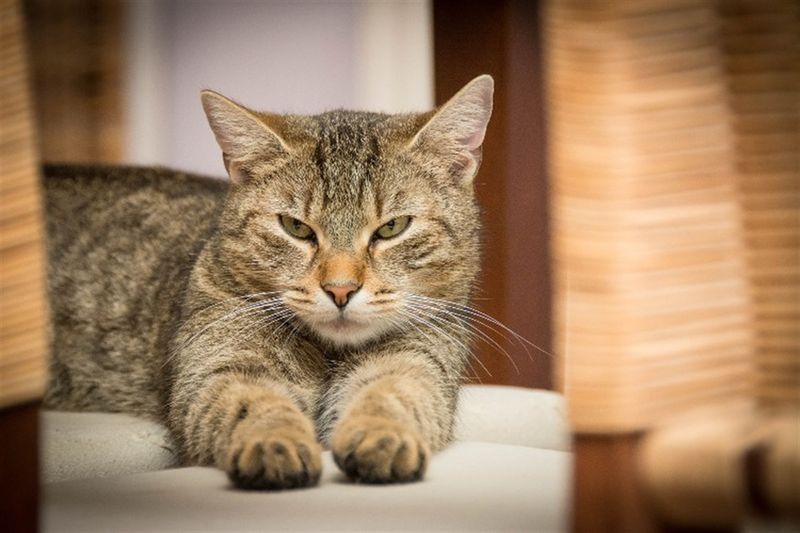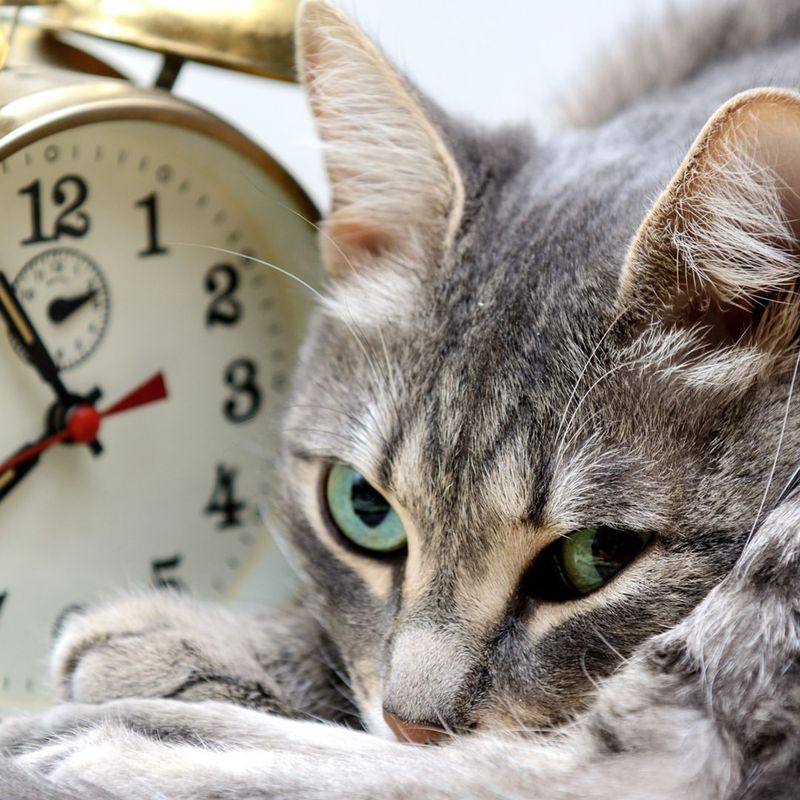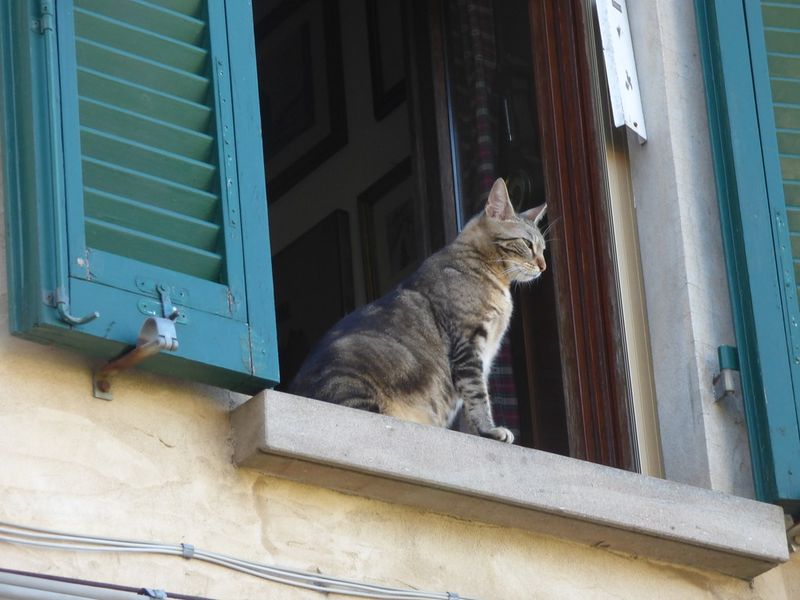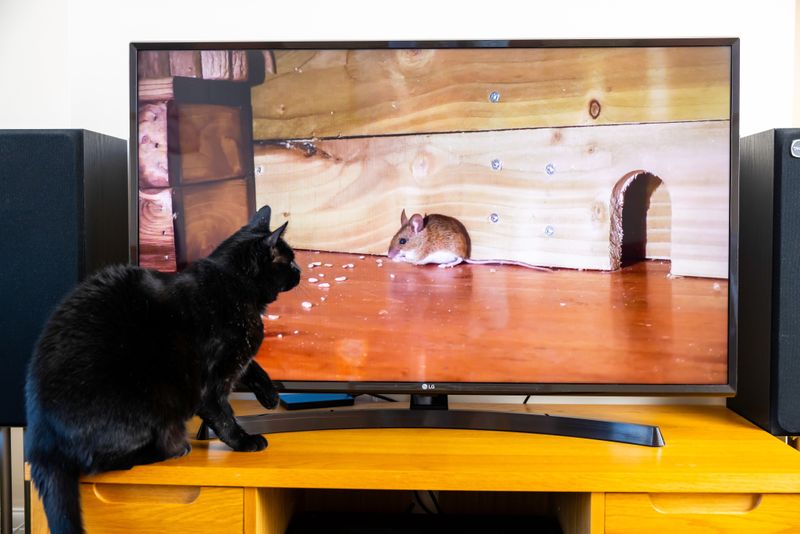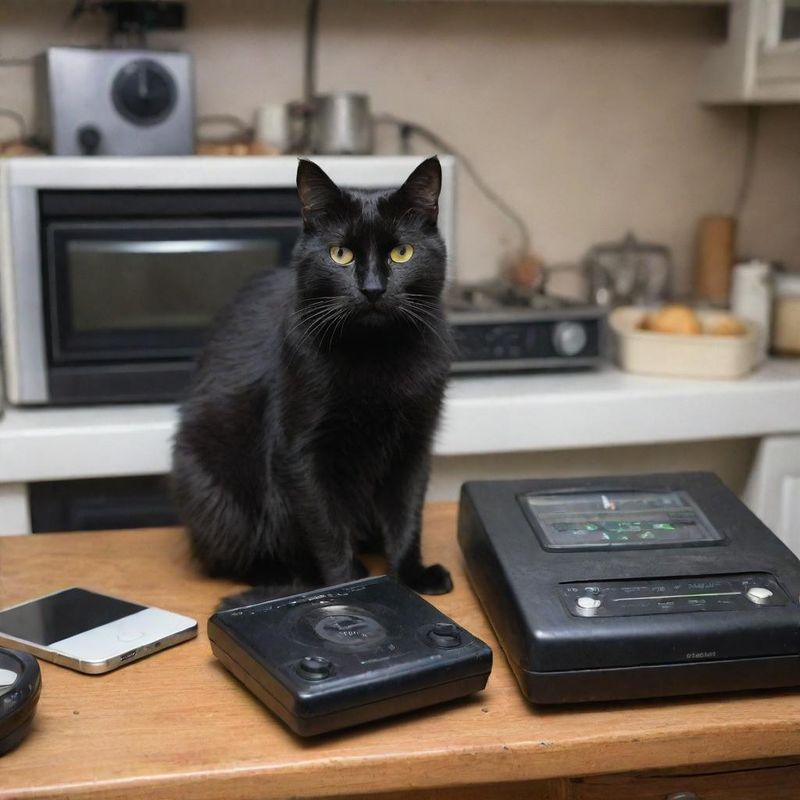📖 Table of Content:
Cats possess an extraordinary sense of hearing that is far more refined than that of humans. Their ability to pick up even the slightest noises means they can hear things that often go unnoticed by people. While this keen sense helps them in many ways, it can also make certain sounds overwhelming and irritating.
Everyday sounds that seem normal to humans can be a source of stress for a cat. From loud appliances to sudden noises, many things in the environment can unsettle them. Being aware of which sounds are particularly disturbing can go a long way in creating a calmer space for a cat to relax in.
By minimizing these unsettling noises, a more comfortable atmosphere can be maintained for your feline companion. Simple changes in the household environment can reduce stress and prevent anxiety. Understanding your cat’s sensitivity to sound can make a significant difference in their overall well-being.
1. Vacuum Cleaner
The noise of a vacuum cleaner is notoriously distressing for many cats. Its loud and sudden roar mimics the sound of a predator, triggering a cat’s fight-or-flight response. Many cats dash away and hide when the vacuum is turned on, perceiving it as a threat.
To help your cat stay calm, try introducing the vacuum cleaner to your cat while it’s off, allowing them to sniff and explore it. Gradually increase exposure with the vacuum on a lower setting, rewarding them with treats for calm behavior.
2. Hair Dryer
The whirring sound of a hair dryer can be unsettling for cats. Its high-pitched noise and the sudden gust of air add to the discomfort. Some cats may perceive this as an approaching danger, causing them to become anxious or startled.
To desensitize your cat, turn the hair dryer on in a different room first, allowing them to get used to the sound. Offer a cozy bed or quiet retreat nearby, where they can feel secure, and reward them with treats for remaining calm during your hair-drying routine.
3. Doorbell
The sudden ringing of a doorbell can jolt your cat into a state of alertness. Cats are naturally curious but also cautious creatures, and unexpected sounds can trigger a startling response.
To help your cat stay calm, consider using a softer chime for your doorbell, or introduce a routine where a familiar voice reassures them after the bell rings. If she hides when the doorbell rings, provide a safe spot where they can retreat and feel protected.
4. Loud Music
Cats have a much more sensitive sense of hearing than humans, so loud music can be overwhelming. The bass and high notes can be stressful and disorienting. If you notice your cat seeming stressed or restless when music is playing, try lowering the volume or switching to softer genres.
Create a quiet space away from the noise where your cat can retreat and relax. Providing them with toys or a cat tree can also help divert their attention.
5. Thunderstorms
The sudden sounds and bright flashes in the environment can be highly unsettling for cats. These unexpected disruptions often trigger anxiety and stress. During a storm, offering a quiet space with a blanket and familiar toys can help your cat feel more secure.
Closing curtains and playing soft music can help muffle the sound of thunder, providing a calming effect. Reassure your cat with gentle petting and a calm voice to ease their anxiety.
6. Fireworks
Fireworks are a nightmare for cats, with their loud explosions and blinding lights. The unexpected noise can trigger a deep sense of fear, as they may perceive it as a threat. Ensure your cat’s safety by keeping them indoors and offering a quiet hideaway.
Close windows and curtains to block out the noise and flashes. Playing calming music and providing interactive toys can help distract and soothe them.
7. Construction Noise
The constant hammering and drilling of nearby construction can send cats into a state of stress. These loud, abrupt noises often make them feel uneasy and unsafe. Keeping windows closed can help minimize the noise and provide some relief for your cat.
Offer a quiet and comfortable room with distractions like toys and treats to help your cat feel secure and less anxious.
8. Alarm Clock
The sudden ringing of an alarm clock can startle cats, especially if they’re in the middle of a nap. This loud noise can cause unnecessary stress or anxiety. If your cat is sensitive to sound, try a softer, more gradual alarm to wake them up gently.
Ensure she has a quiet, comfortable sleeping area away from the alarm to help them rest peacefully even when it goes off.
9. Sirens
With their high-pitched wailing, the sound of sirens can be very upsetting for cats. These loud, unfamiliar noises are often associated with danger, making cats feel stressed. To minimize their anxiety, keep windows shut and curtains drawn to reduce the noise.
Providing a comforting environment with familiar scents can help. If sirens frequently disturb your cat, consider using a white noise machine to drown out these noises, creating a calmer atmosphere.
10. Crying Baby
While a crying baby may not be a threat, the loud and unfamiliar noise can make cats uneasy. The unpredictability of the sound can be disconcerting for them. Introducing your cat to the baby’s sounds gradually can help them adjust.
Offer reassurance with gentle petting and create a safe space where they can retreat if needed. Familiarization with the baby’s scent and supervised interactions can also help in building a positive relationship.
11. Phone Ringtones
The sudden ringing of a phone can surprise and unsettle cats. The sharp noise, especially if unexpected, might trigger a startling response. To help your cat feel more at ease, choose softer or more melodic ringtones.
Keep phones on vibration mode when possible, or provide your cat with a quiet retreat area where they can escape the noise if they feel anxious.
12. Door Slamming
A door slamming shut can jolt cats, making them feel insecure and anxious. These unexpected noises can disrupt their peace, leading to stress. Gently closing doors around the house can help keep your cat calm and reduce their anxiety.
If your cat seems distressed by door slams, provide them with a safe space where they can hide and feel secure. Gradually, they may become desensitized to the noise.
13. Television Volume
Television noise, especially from action scenes, can be overwhelming for cats. The combination of loud dialogue, music, and sound effects might stress them. Keep the volume at a moderate level, especially if your cat seems uneasy.
Consider creating a cozy nook away from the TV where your cat can relax. Providing background noise, like classical music, can also help mask the TV sounds.
14. Microwave Beeping
The repetitive beeping of a microwave can capture a cat’s attention, sometimes causing them distress. The unexpected sound can be confusing for them.
Reassure your cat by speaking softly and offering a treat when the microwave beeps. If they continue to show signs of stress, try to reduce their exposure to the sound by keeping them in another room during kitchen activities.
